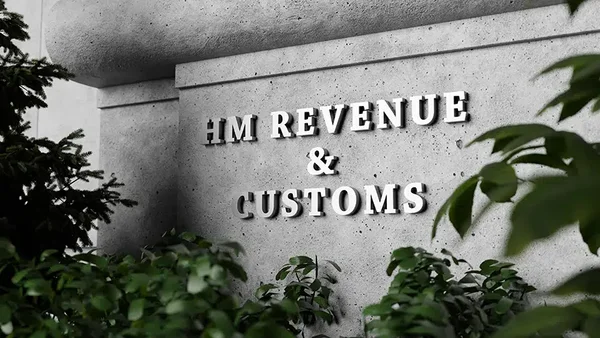Grasping the Basics of Pro Forma Invoices

In the world of finance and taxation, the term ‘pro forma invoice’ often surfaces, especially among businesses and professionals. But what exactly is a pro forma invoice? Unlike regular invoices, pro forma invoices are preliminary bills sent to buyers ahead of the final invoice. They act as a commitment from the seller to provide goods or services at specified prices and terms. This document is particularly useful in international trade, outlining details such as the nature of goods, quantity, value, and delivery terms. By understanding pro forma invoices, businesses can avoid potential misunderstandings and ensure smoother transactions.
For UK businesses, the intricacies of tax and financial documentation can be daunting. Pro forma invoices simplify some of these complexities by presenting a pre-estimate of costs, aiding both sellers and buyers in budgeting and forecasting. They are also crucial for customs declarations and securing necessary permits in cross-border transactions. As you navigate through UK tax and business regulations, familiarising yourself with pro forma invoices can offer significant advantages. The Pie Tax App and its expert tax assistants available on the Pie app can help you manage such documents efficiently.
What Pro Forma Invoices Include
Pro forma invoices typically include essential details such as the seller’s information, buyer’s information, a detailed list of goods or services, agreed prices, and delivery terms. By clearly outlining these elements, pro forma invoices provide clarity and transparency in business transactions. This transparency is crucial in preventing misunderstandings and disputes, ensuring that both the seller and buyer are on the same page regarding the transaction. Additionally, having all these details in writing can serve as a reference point if any issues arise later, further minimizing the potential for conflicts.


Why Use Pro Forma Invoices
Using pro forma invoices ensures that both parties are on the same page regarding the transaction details. These documents serve as preliminary invoices that outline the terms of a sale before the final commercial invoice is issued.
Pro forma invoices also facilitate smoother negotiations and budgeting. For the seller, they provide a basis to outline all costs and terms upfront. For the buyer, these invoices offer an opportunity to review and agree on the details before committing to the purchase.

A recent study found that 80% of international businesses rely on pro forma invoices for preliminary transaction documentation. This practice significantly reduces shipment delays and customs issues by providing detailed and accurate information upfront, ensuring smoother processing and compliance with international trade regulations.Significance in International Trade

According to financial experts, using pro forma invoices helps in reducing financial uncertainties by 70%. This practice ensures clearer communication between parties, facilitates smoother negotiations, and allows for more accurate financial forecasting, thereby minimizing unexpected financial issues.Reducing Financial Uncertainties

How Pro Forma Invoices Benefit Businesses
Pro forma invoices offer myriad benefits for businesses. Primarily, they serve as a clear communication tool between buyers and sellers, outlining all pertinent transaction details ahead of time. This helps in building trust and ensuring transparency. For instance, if you’re a business selling products abroad, a pro forma invoice allows you to itemise goods, set prices, and mutually agree on payment terms before the actual sale, thereby minimising any potential conflicts or misunderstandings.
Additionally, pro forma invoices are essential in customs clearance for international trade. Customs departments frequently require this document to review the shipment's legality and valour. By having a well-crafted pro forma invoice, businesses can expedite customs checks, ensuring quicker delivery and fewer administrative hurdles. This seamless process not only saves time but also minimizes costs related to storage fees and potential fines.
Differentiating from Other Invoices
Understanding the distinction between pro forma invoices and other types of invoices like commercial or sales invoices is crucial. A pro forma invoice is not a demand for payment but serves as a preliminary bill of sale. It functions as an estimate, providing planned costs and transaction details before the official invoice. This allows buyers and sellers to agree on terms and costs before proceeding with the transaction.
On the other hand, a commercial invoice is a final and legally binding document issued for payment. This document is used for the actual sale and payment collection. Hence, while pro forma invoices act as a blueprint for transactions, commercial invoices are the final execution stage. Grasping these differences ensures better financial and administrative management, avoiding confusion and potential disputes during the transaction process.

Tips for pro forma invoicing

Going forward, businesses are likely to rely more heavily on digital pro forma invoices for better record-keeping and efficiency

It's advisable always to provide comprehensive details on pro forma invoices to avoid disputes and enhance clarity.

Consulting with financial experts or using specialised software can make creating pro forma invoices more straightforward and accurate.

Interesting Pro Forma Invoice Fact
Did you know that the term ‘pro forma’ comes from Latin, meaning ‘for the sake of form’? Historically, these invoices were used in the 18th century to facilitate early international trade, ensuring that both parties understood transaction terms before finalising deals. This tradition continues today, proving the enduring relevance of clear and transparent financial communication.
Handling Pro Forma Invoices Efficiently

Effectively managing pro forma invoices involves a systematic approach. First, always maintain accurate and detailed records of all issued and received pro forma invoices. This practice ensures that all parties have a clear understanding of the transaction terms and helps prevent any discrepancies or misunderstandings that could arise later. Using digital tools or accounting software can streamline this process, making it easier to track and retrieve invoices when needed.
Second, regularly review and update your pro forma invoices to reflect the most current prices, terms, and conditions. Outdated or inaccurate information can lead to confusion and, potentially, financial losses. This is especially crucial in fast-paced industries or volatile markets where prices and terms can change rapidly. Leveraging the Pie Tax app and expert tax assistants available on the Pie app can significantly assist in this area, offering tools and guidance to ensure your pro forma invoices are always up to date.

Maintaining detailed records of pro forma invoices is paramount. It not only aids in financial management but also in legal compliance. Accurate records ensure that both parties can reference agreed terms if disputes arise. Proper documentation also facilitates easier tax filing and auditing processes. With the assistance of the Pie Tax App and expert tax assistants available on the Pie app, businesses can efficiently manage these records, reducing administrative burdens while ensuring compliant and precise record-keeping. Record-Keeping Importance

Regular updates to pro forma invoices ensure that transaction details remain current and accurate. This practice is vital in dynamic business environments where prices and terms can change swiftly. Keeping information up-to-date helps avoid misunderstandings and potential conflicts. The Pie Tax app can be a valuable tool, providing reminders and templates to ensure all your pro forma invoices are updated and compliant with current standards. Updating Invoice Information
Summary
In conclusion, pro forma invoices are indispensable tools in both domestic and international trade. They serve as preliminary agreements that outline the terms and conditions of a sale, ensuring transparency and preventing misunderstandings. By using pro forma invoices, businesses can prepare better for customs declarations, streamline their administrative processes, and improve financial forecasting.
Whether you're a seasoned business owner or a new entrepreneur, incorporating pro forma invoices into your financial practices can offer significant advantages. These documents not only facilitate smoother transactions but also enhance your credibility and professionalism in the eyes of your clients. Utilising tools like the Pie Tax App and the expert tax assistants available on the Pie app can further simplify the management of these invoices, ensuring they are accurate, up-to-date, and compliant with relevant regulations.










